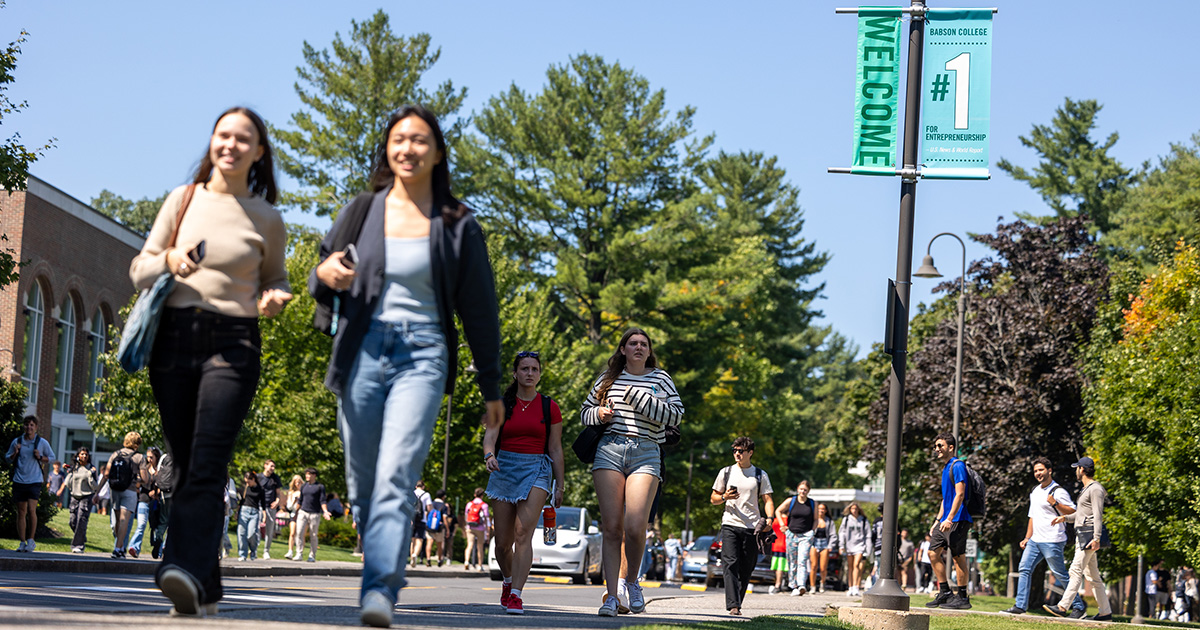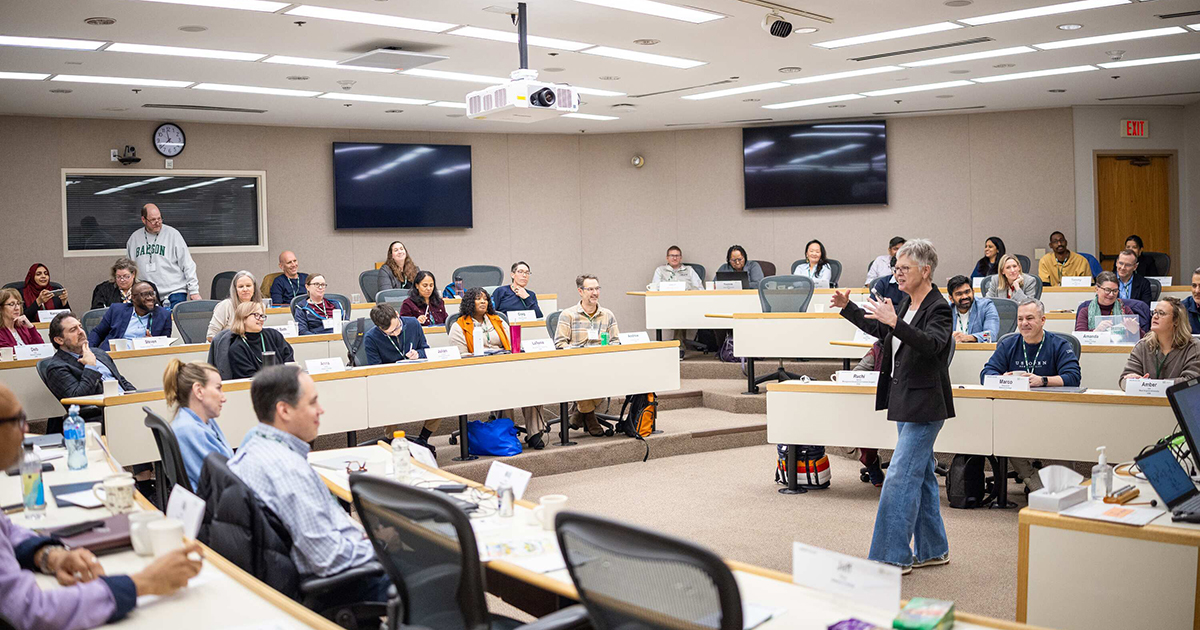Jamie Siminoff ’99 and the Power of Entrepreneurial Thinking
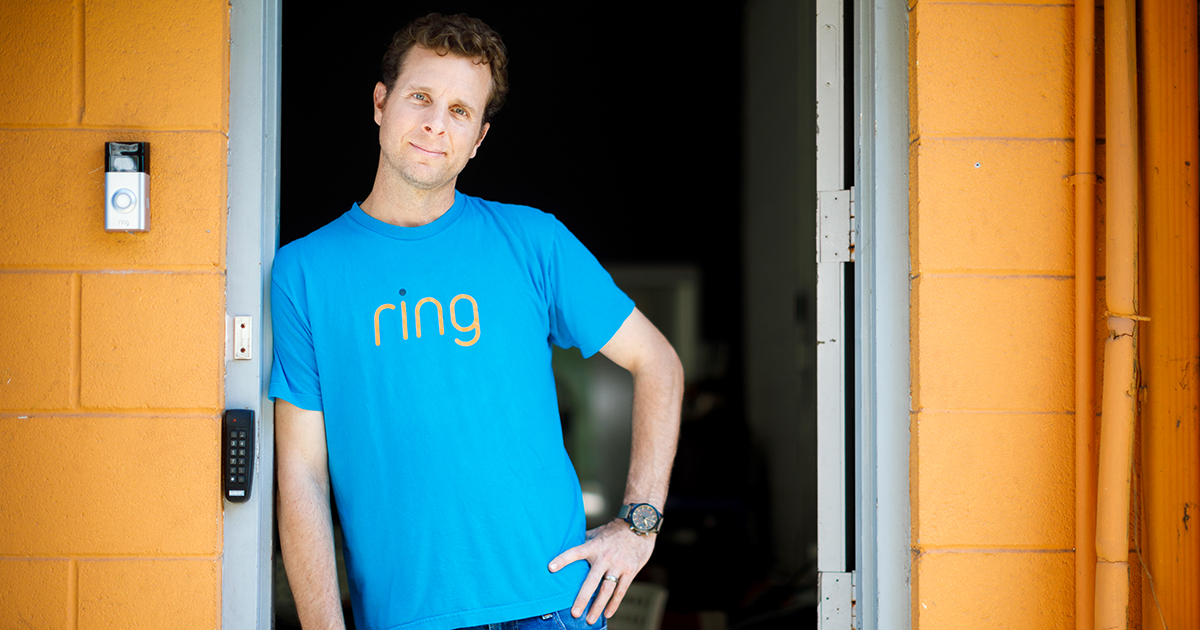
When Jamie Siminoff ’99 first pitched the idea of reinventing the doorbell, friends laughed at him and Sharks snubbed him.
So, when the renowned CEO, founder, and chief inventor of Ring suggests that entrepreneurs can help change the world, maybe we should heed his words.
“I think doctors going to Babson could cure cancer,” Siminoff said, “and I really mean that, because stepping back and thinking differently about this stuff has caused amazing things.”
Siminoff—who famously pitched his startup on “Shark Tank” and didn’t get a deal, but then sold Ring to Amazon for $1 billion and returned to the ABC TV show as a Shark himself—knows the impact that entrepreneurial thinking can have on society. In the case of Ring, Siminoff’s invention is making neighborhoods safer. And, in the medical breakthroughs that he has personally helped support, the work is literally saving lives.
Siminoff spoke about the convergence of entrepreneurial thinking and medicine at the first day of Babson Connect: Worldwide, the premier entrepreneurial summit. He also will return to Babson (virtually) in May to deliver the Commencement address to the undergraduate Class of 2021 and receive an Honorary Doctor of Laws degree.
Medical Breakthroughs
When his father was diagnosed with glioblastoma, a rare brain cancer, Siminoff approached it like any entrepreneurial challenge—searching out information, looking for medical experts, and seeking a solution.
That journey led him to the intersection of health care and entrepreneurial leadership. It led him to Dr. Santosh Kesari at Harvard’s Dana-Farber Cancer Institute. There, Siminoff had found a doctor—one of the top neuro-oncologists and neurologists in the United States, actually—who shared a kindred spirit for solving big problems.
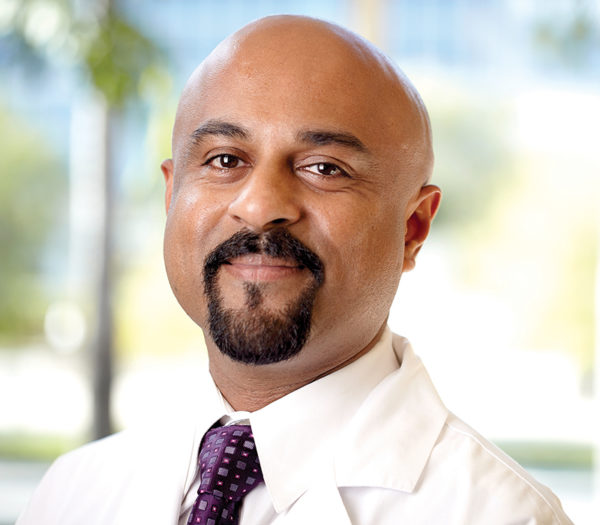
Dr. Santosh Kesari, one of the top neuro-oncologists and neurologists in the country, is partnering with Jamie Siminoff on innovative ideas for treating patients.
Since that meeting a decade ago, Siminoff and Kesari—now at the Saint John’s Cancer Institute (formerly the John Wayne Cancer Institute) in Santa Monica, California—have formed a sort of partnership in pursuit of a cure. Working together, Siminoff has helped fund some of Kesari’s innovative ideas for treating patients through immunotherapy. Now, Siminoff says, people are living with glioblastoma, without the need for chemotherapy or radiation; they’re not just alive, but living healthy lives.
The difference isn’t the money—cancer institutes have billions of dollars in funding, after all. The difference is the approach, bringing entrepreneurial thinking to the field of medicine.
“As an entrepreneur, how do you build the next company when you have billion-dollar competitors? You outthink them, you go horizontal, you use the pieces that are out there,” Siminoff said. “We’re doing a very similar approach to that and having an incredible amount of success.”
The pandemic, too, has accelerated new ways of thinking. Siminoff points to the record-breaking COVID-19 vaccines, as an example, which could prove to have far-reaching effects. We could be on the verge of more medical marvels. “I wouldn’t be surprised,” Siminoff says, “if in the next 10 years we see more medical breakthroughs than we’ve seen in the past 50 years or 100 years.”
Entrepreneurial Roots
Siminoff’s success, of course, got its start at Babson College.
It’s where he ran a business—Gadget Tronics—selling TVs and stereos. It’s where he and his friends did odd jobs and “all sorts of stuff to make money.” It’s also where he got in trouble with his Foundations of Management and Entrepreneurship (FME) venture, when a guerrilla marketing stunt got overly aggressive. “Babson was not super stoked about that,” Siminoff said.
What Babson did instill in him, though, has powered his career. “It really teaches you that entrepreneurship is not about starting an actual business,” he said. “It’s sort of a way of thinking, which can infect and be effective in lots of ways.”
“When I invent and fix a problem, and then see other people benefiting from that, that’s what makes me excited.”
Jamie Siminoff ’99, CEO, founder, and chief inventor of Ring
By the time he graduated in 1999, he was on his way but still a ways away from finding his life’s calling.
“I definitely had a burning desire that I felt like I could do something,” he said. “Babson was a great place to help foster some of that, but it still took me 10 years to realize that my burning desire was not to have a business or to be successful. It was to invent things, and to see people using them in their daily lives. When I invent and fix a problem, and then see other people benefiting from that, that’s what makes me excited.”
‘It’s Kind of Crazy’
Now, in addition to running Ring and working with Kesari to try to help cure cancer, Siminoff is excited to return to his alma mater as the experienced voice of wisdom.
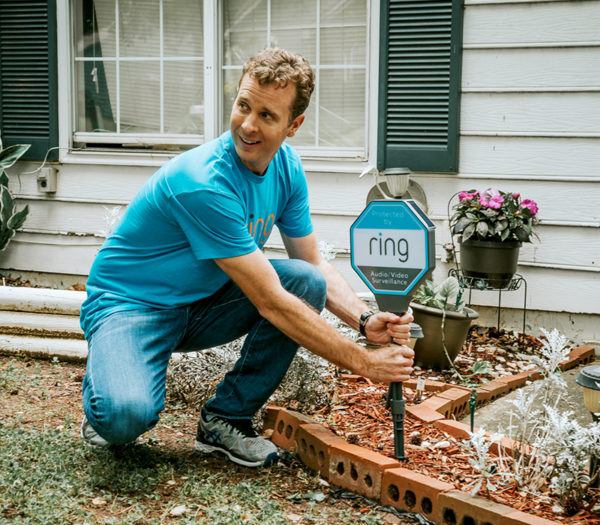
Jamie Siminoff ’99 invented Ring on the entrepreneurial thinking he learned at Babson.
He knows the margin between success and failure is thin—even with a revolutionary company such as Ring. He notes how many times he almost failed. “Even until the end, I mean, we almost went broke with Ring in late 2017, and we sold early 2018,” Siminoff said. “So, the difference between me being a graduation speaker and maybe being someone looking for a job was very close.”
To Siminoff, the thought of being a Commencement speaker at his alma mater is, well, laughable. “It’s insane,” he says.
It’s also incredibly special, particularly because Babson President Stephen Spinelli Jr. MBA’92, PhD was one of Siminoff’s professors and earliest supporters. “He was a mentor to me and gave me hard love early on when I graduated and invested in the lab that became Ring,” he says. “When you put it all together, it’s kind of crazy.”
As crazy as reinventing the doorbell or attempting to cure cancer. The key, he says, is the entrepreneurial thinking, which he credits to his Babson education.
“Babson shows you in a lot of ways that the world is sort of unlocked,” Siminoff said, “that it’s yours to figure out.”
Posted in Community

